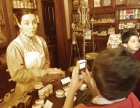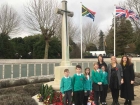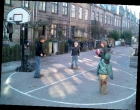Local History
Local history provides rich opportunities to engage children in their immediate local area and understand their own history and how history contributes to a greater overall understanding and bigger picture. In this section you will find articles, guides, and resources to enable you to make local history meaningful.
Sort by:
Date (Newest first) | Title A-Z
Show:
All |
Articles |
Podcasts |
Multipage Articles
-

'Doing Local History' through maps and drama
ArticleClick to view -

A Local History Toolkit
ArticleClick to view -

A treasure trove of local history - how to use your local record office
ArticleClick to view -

Bringing the Civil War to life in Somerset
ArticleClick to view -

Case Study: Hit the net!
ArticleClick to view -

Chronology and local history: Year 6
ArticleClick to view -

Churches as a local historical source
ArticleClick to view -

Curriculum planning: How to write a new scheme of work for history
ArticleClick to view -

Dealing with the dead: Identity and community - Monuments, memorials and local history
ArticleClick to view -

From Home to the Front: World War I
ArticleClick to view -

Geosong: a transition project
ArticleClick to view -

Hearts, Hamsters and Historic Education
ArticleClick to view -

Home Front Legacy 1914-18
ArticleClick to view -

How do we ensure really good local history in primary schools?
ArticleClick to view -

How significant is the tragic story of the SS Mendi?
ArticleClick to view -

How to make a toy museum
ArticleClick to view -

Introducing local history: the Fusehill Workhouse Project
ArticleClick to view -

Learning Outside the Classroom
ArticleClick to view -

Learning to engage with documents through role play
ArticleClick to view -

Learning what a place does and what we do for it
ArticleClick to view

